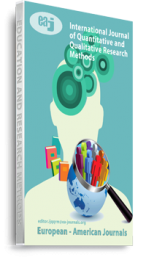The aim of this study was to determine the impact of financial inclusion on economic growth in Nigeria. the study used an ex-post facto research design and investigated variables such as credit to the private sector (CPS), ATM transactions(ATM), and gross domestic product (GDP) as indicator variables for financial inclusion and economic growth, respectively. The Statistical Bulletin of the Central Bank of Nigeria, provided the annual time series statistics on private credit, ATM usage, and GDP from 2001 – 2021. Using the ordinary least square (OLS) approach, the data were examined. The study established credit to the private sector is positively related to economic growth and is statistically significant, However, ATM transactions have a positive and statistically insignificant relationship with economic growth in Nigeria The study suggests that monetary authorities implement measures to promote and increase the availability of credit to the private sector. r e.g., through reducing interest rates to levels that are conducive to growth objectives as this will favor economic development.
Keywords: Financial Inclusion, Nigeria, OLS, economic growth

